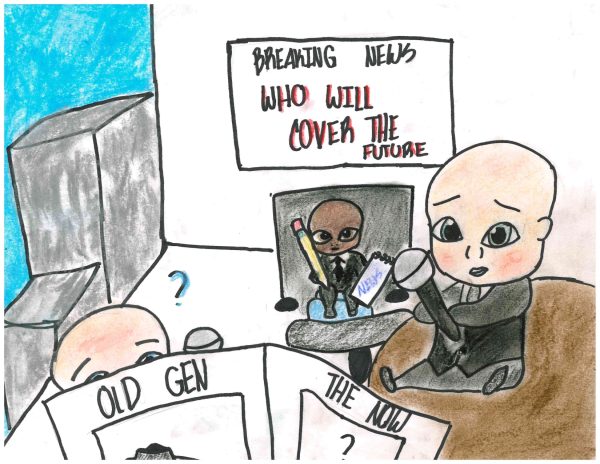‘Tuesdays With Morrie’ offers beneficial insight
Using the advice provided and explored in the memoir “Tuesdays with Morrie” by Mitch Albom, readers can look inwards and discover ways to better manage seasonal depression. The book centers around life lessons shared by a dying professor.
Through sharing life lessons passed from professor to student, Mitch Albom spreads guidance in his memoir ‘Tuesdays with Morrie’ that readers can instill into their own daily lives.
The book centers on aging professor Morrie Schwartz and the weekly meetings with a former student, Mitch Albom.
Throughout the sessions, the two discuss various topics pertaining to life, as Albom is now a young man and Morrie is nearing the end.
The book’s writing style is clear, concise and effective. Although the messages explored throughout the chapters aren’t complex, Albom delivers them in an enlightening manner that is beautifully thought-provoking.
Morrie’s lingering death is expedited by his diagnosis of ALS. Although many people may fear death, Morrie seems to accept it as something that must occur.
Despite this acceptance, Morrie continues fighting and living life to the fullest.
This outward story is so inspiring that Morrie is interviewed for the ABC show Nightline, which Albom happens to see.
From here, the two rekindle their relationship and begin their weekly sessions.
Throughout the description of the following 14 Tuesdays, readers get an insider perspective of a dying man.
Although the book is deeply personal in the content between the two main characters, what emerges is a series of universal lessons about what counts in life.
Some of the themes explored in the book include love, culture, emotions, family, regrets and death.
As the winter season becomes full fledged and finals approach, many of us begin experiencing emotional days of unsatisfaction and sadness.
Albom goes through this, as well. He seems to have everything he wished for in life—a stable, well-paying job and a good marriage—yet he can’t find any happiness in this.
He finds a sort of happiness through achievement, not the life he is living, but the life others perceive he is living. A material substitute for happiness.
Morrie’s advice is hard to take.
“Part of the problem, Mitch, is that everyone is in such a hurry,” Morrie said. “People haven’t found meaning in their lives, so they’re running all the time looking for it. They think [about] the next car, the next house, the next job. Then they find those things are empty, too, and they keep running.”
Many of us are so caught up in trying to distract ourselves from our emotions and formulate a sense of happiness that we never take time to step back and reevaluate these emotions.
Readers can easily relate to the openness and honesty that Albom displays throughout the book, which is combated by the advice provided by Morrie.
Albom delivers a balanced amount of details and dialogue, sucking the reader into the story unfolding before them.
And at only 199 pages, anyone can easily pick up this book and complete it.







